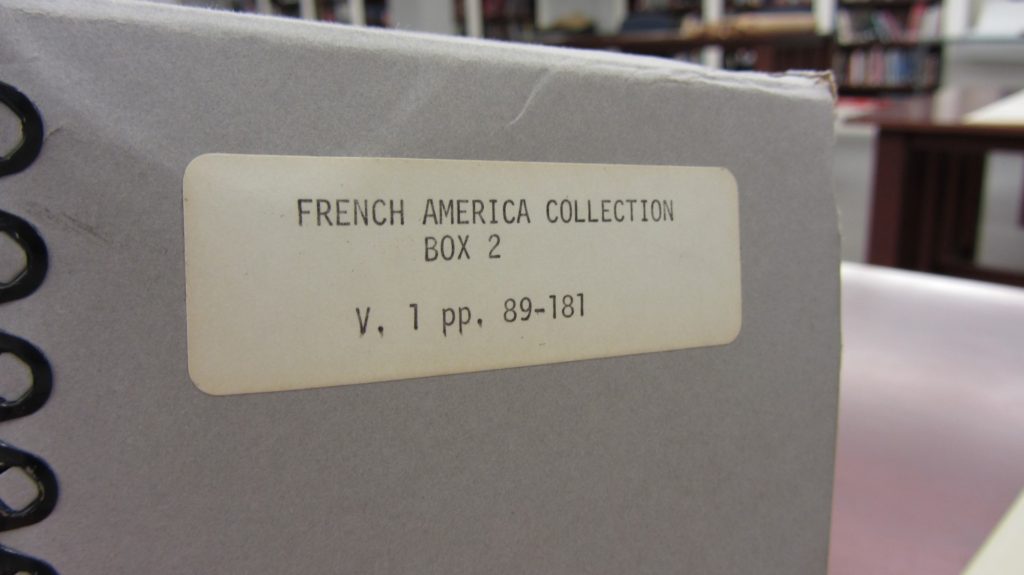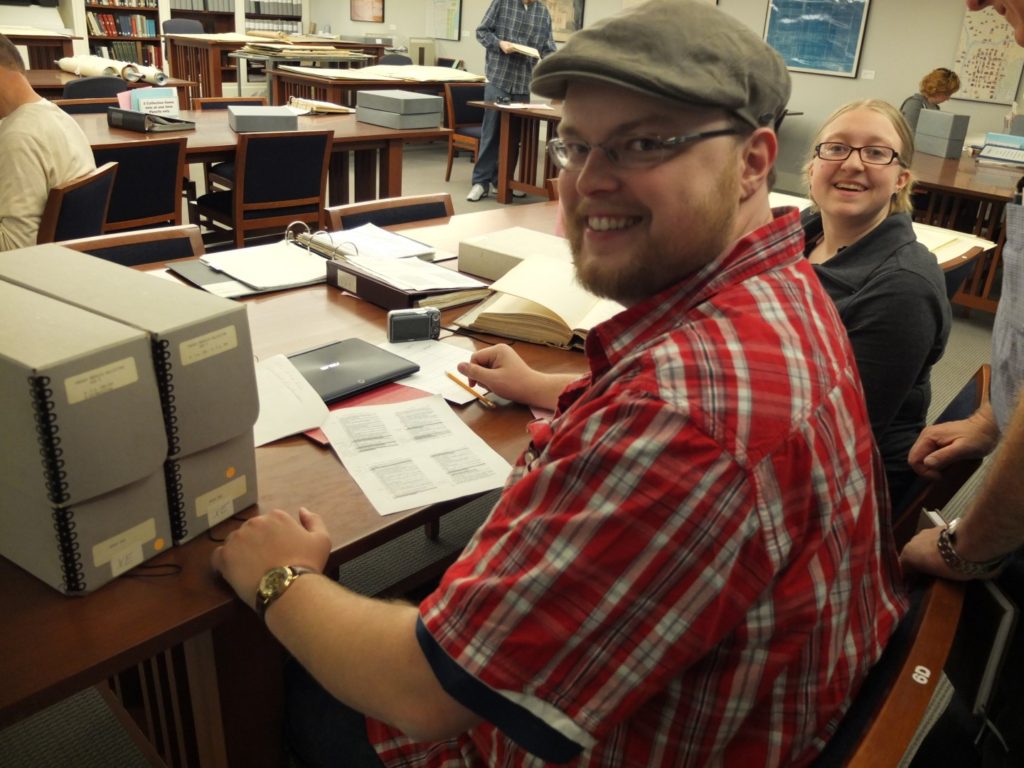Each month, a researcher shares their experiences of using a particular archive. The overall aim of this section is to create a database of the different archives available to those working on French and Francophone studies that will be of help particularly to students just starting out in research.
Joseph Gagné is a post-doctoral researcher affiliated with the University of Windsor. His work focuses on the French Regime in North America, and in particular, the Seven Years War. Here he talks about the material available for historians of France at the Chicago History Museum.
When one gets blown into the Windy City following their research leads hoping to find good French sources, the classic go-to is the Newberry Library. Certainly, this institution is well worth visiting (as Antonia Perna previously attested to in her blog post here). However, I’ve always been fond of lesser known collections as well. Coincidentally, one of my favourites also happens to be in the City by the Lake: the Chicago Historical Society’s collections at the Chicago History Museum.
It’s little wonder people don’t tend to think of this institution when looking for documents relating to the French Regime in North America (particularly the Midwest). Upon my first visit, I was welcomed by an archivist who, incredulously, exclaimed “Wait, we have French documents?”, before coming back with a few finding aids, adding, “Well look at that, we have French documents!”
For my part, my own experience with the museum comes down to a road trip to Chicago with colleagues back in 2013 when we figured we’d make the most of it and drop in with the goal of acquainting ourselves with the collections, their extent, and how best to prepare for a more focused visit in the future. We were pleased to see how eager the staff were to accommodate our small group of unannounced researchers, all the while having no qualms about the use of photography.
That said, perusing their collections requires a bit of preparation. Sure, today you can use Archie, the museum’s online catalogue, to search for individual keywords, or use their on-site index cards, but the results won’t offer you a global view of the French documents which are strewn throughout various sub-collections. Instead, these following printed inventories give a much better sense of these numerous yet eclectic manuscripts.

A quick start to getting a feel for the type of documents that are to be found at the museum is Honorius Provost’s “Inventaire des documents concernant l’histoire du Canada conservés aux Archives de Chicago”, published in the Revue d’histoire de l’Amérique française, volume 4, issues 2 [here], 3 [here], and 4 [here]. Divided into three parts, this inventory covers part of the holdings of both the Newberry Library and the Chicago History Museum.
A more thorough analysis of these holdings is the “Calendar of Manuscripts in the Archives of the Chicago Historical Society,” published within the first volume of the 1905 Report on Canadian Archives, pages xxxii to xlvii, which you can conveniently read on archive.org. As useful as this calendar is, you will need to remind the archivist to cross reference any of the listed manuscripts you wish to consult with its original type-written draft available on-site (“Calendar of Manuscripts in the Archives of the Chicago Historical Society. Compiled by the Dominion Archivist” which, I was told, a second manuscript copy can be found in Ottawa). Indeed, as I was writing this blog post, I’ve noticed that subsequent archivists have left hand-written addenda specifying in which collection each individual manuscript can be found.
One final bit of advice, there also happens to be an on-site handbook of the museum’s Kaskaskia Papers (not to be confused with the Kaskaskia Manuscripts of Randolph County in Chester) which, and I quote, “[…] consists of official records of the court; parish records and other data kept by the churches; ledgers and account books of private businesses; also deeds, legal papers and other documents of a commercial nature. There is no correspondence as such. The […] outline shows, in general, the material included in this collections.” My apologies for not having a specific call number for this document.

Mind you, at the time of this writing, the museum’s website warned: “Archives and manuscripts, with the exception of some small collections, will be unavailable to researchers from December 24, 2020 through January 1, 2022 (estimated time frame).” So even without the current pandemic, you have plenty of time to prep your research trip.
When you do happen to go, if you tend to travel by rail like I do, getting to the museum is fairly easy using the city transit system. For example, it’s barely a ten-minute walk from the nearest subway station. There are plenty of restaurants and fast food in the surrounding area. If you’ve never been to the Midwest, I love going to Jimmy John’s for a quick bite (think Subway, but if it was good!). And if you’ve never been to Chicago, you absolutely have to try Chicago-style deep-dish pizza (I’m still angry it’s impossible to find outside of the city. Maybe I’ll have to follow up this blog if I manage to successfully make my own…). On a final note for anyone who’s never been to Chicago, while doing “the tourist thing,” do not miss the Marquette Building on 140 South Dearborn Street. Its various busts, mosaics, and bronze bas-reliefs are a stunning ode to the city’s French colonial past.
Happy findings!
P.S. For more lesser-known archive centers pertaining to the French Regime in North America, please visit my website: novafrancia.wordpress.com.
Author biography:

Joseph Gagné is a Franco-Ontarian from Chapleau, Northern Ontario, presently living in Québec City. He is currently a post-doctoral researcher affiliated with the University of Windsor. His field of study is the French Regime in North America, while specializing in the history of the Seven Years’ War (1754-1763). He is present research focuses on the role of women camp followers during this war. A regular contributor to collective works, he is also the author of the book Inconquis : Deux retraites françaises vers la Louisiane après 1760 published by the Éditions du Septentrion. Joseph is not only active on social media (including his blog Curious New France), but can often be heard in traditional media in Québec, Ontario, and the United States. Bon vivant, cat person and rum enthusiast, he also has a penchant for weird historical anecdotes which he loves sharing on his Twitter account.
Thank you very much for this, Joseph!


